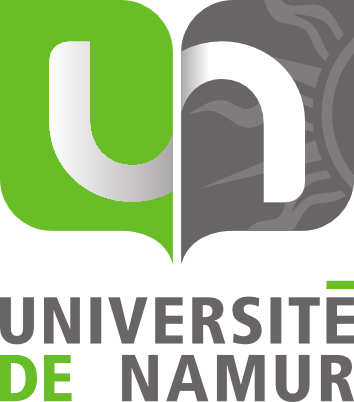Soutenance publique de thèse de doctorat en Sciences chimiques - Benjamin BUYSENS
Hybrid hydrogel materials for the immobilisation of higher plants cells : immobilisation of modified Nicotiana tabacum cells in alginate-silica hydrogel beads
Date : 04/09/2023 15:00 - 04/09/2023 18:00
Lieu : CH12
Orateur(s) : Benjamin BUYSENS
Organisateur(s) : Bao-Lian Su
Jury
- Prof. VINCENT Stéphane (UNamur, département de chimie), président
- Prof. SU Bao-Lian (Unamur, département de chimie), secrétaire
- Prof. BOUTRY Marc (UCLouvain, Louvain Institute of Biomolecular Science and Technology)
- Prof. VAN CUTSEM Pierre (UNamur, département de biologie)
- Prof. SHAVANDI Amin (Université Libre de Bruxelles, Ecole Polytechnique de Bruxelles)
- Prof. MICHAUX Catherine (UNamur, département de chimie)
- Prof. KRIEF Alain (UNamur, département de chimie)
Abstract
Plant cell suspensions are remarkable platforms for the production of therapeutic proteins. The commercialisation of plant cell products, despite its safety and low cost, is limited by low yields, cell fragility, poor control over cell development, and product purification [1]. The encapsulation of cells in porous matrices has been considered for addressing those issues. The matrix provides protection against mechanical stress, control on cell growth, and facilitates the separation of the product. Nonetheless, current immobilisation materials often display poor mechanical resistance and poor diffusive properties. The former leads to cell leakage, while the latter is due to the addition of a matrix around the biological entities, which will limit mass transfer.
The aim of the present research is to design a suitable matrix that satisfies biocompatibility, mechanical and diffusive requirements for the immobilisation of higher plant cells. For this purpose, several bio-sourced polymers forming in mild conditions, to preserve cell viability, were assessed in combination with silica, to strengthen the matrix, to form an hydrogel bead around the cells[2 - 4]. In the study of potential polymers such as cellulose, pectin or gellan gum, only alginate material allowed to form a stable hybrid hydrogel with silica in a one-pot synthesis.
Alginate formed the gel by ionotropic gelation with calcium ions, and silica by aqueous solgel. Additionnaly, a polycation was used to further enhance the stability of the alginate-silica matrix by polyelectrolytic complexation. The synthesis conditions that influenced the matrix properties have been studied and optimised to obtain hydrogel spherical beads compatible with living higher plant cells. The matrices featured a meso-macroporosity that should allow the diffusion of nutrients and metabolites when characterized using nitrogen physisorption. However, molecular probe diffusion, used to evaluate the porosity and diffusion properties, showed no mass exchange between the matrix and its environment. The hybrid hydrogel beads preserved their integrity up to a month without disruption under liquid media culture conditions.
Alginate-silica materials allowed for the successful immobilisation and preservation of viability of Nicotiana tabacum cells producing recombinant immunoglobulin G. However, the protein could not be recovered outside the beads due to the observed diffusion issues. The hybrid material also provided better containment of the cells compared to beads made of alginate alone. These results show that hybrid matrices are a promising candidate for the immobilisation of higher plant cells, provided that the remaining diffusion issues are addressed.
[1] J. Xu, X. Ge, M; C. Dolan, Biotechnol. Adv. 29 (2011) 278-299
[2] T. Coradin, J. Livage, Ace. Chem. Res. 40 (2007) 819-826
[3] J. Desmet, et al., J. Colloid Interface Sei. 448 (2015) 79-87
[4] B.B. Zhang, et al., ACS Appl. Mater. Interfaces 8 (2016) 8939-8946
Télecharger :
vCal
